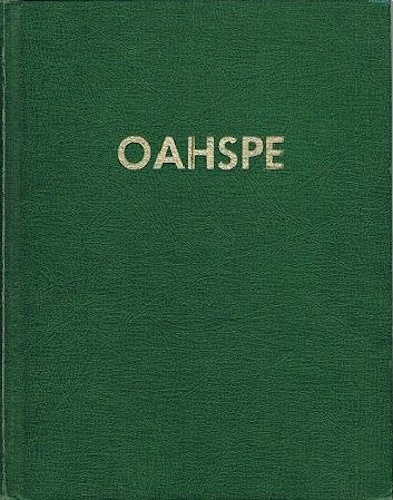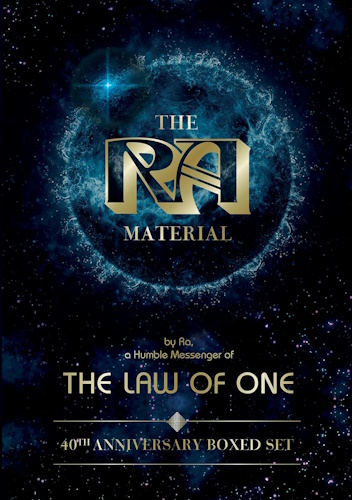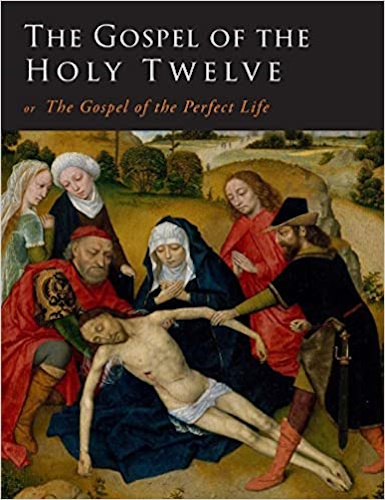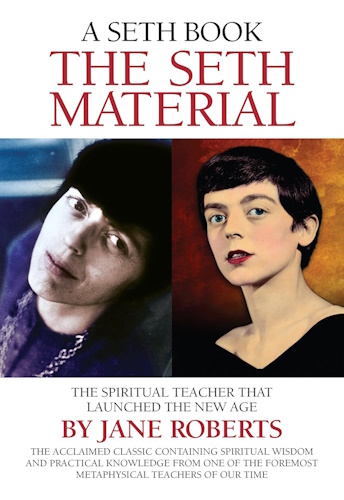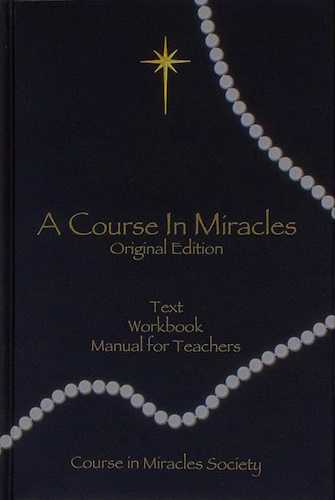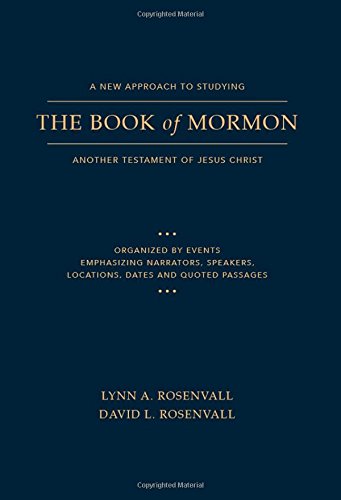
![]()
![]()
Book of God's Word
Chapter XXX
1. ON the following evening, when the Zarathustrians were assembled for prayer and singing, the soul of Zarathustra again appeared before them in sar'gis, teaching the Word of Ormazd. He said:
2. Two people there are on the earth: the one is engrossed in the affairs of the earth; the other in the affairs of heaven. Better is it for ye to be of the latter. The fool will say: If all people are engrossed with the affairs of heaven, then who will provide on the earth? Such is the argument of all druks. Fear not, therefore, for the earth people becoming short of votaries.
3. So also will it be said of celibacy. The druks will say: If all people become celibates, then will the race of man terminate. Wherefore, I say again unto you, fear not, for there will be plenty left who are full of passion, and are unmindful of the kingdoms of heaven.
4. Let all who can, live for the Higher Light; the lower will ever be supplied sufficiently.
5. Even as ye find two peoples on earth, so also do two peoples exist in heaven. The one followeth the Highest Light, and ever riseth toward the highest heavens. The other followeth the affairs of earth, and riseth not, and hence is called druj. The latter engageth in sensualism, and quarrels amongst mortals, inspiring them to evil and low desires.
6. One present asked: How shall we know one another, whether we be of heaven or of earth? Then Zarathustra answered, saying: Seek to know thyself; thou art not thy neighbor's keeper. Search thine own soul a
p. 250b
hundred times every day, to know if thou practicest the All Highest according to thine own light. Neither shalt thou find excuses for thy shortness; nor reflect overmuch on past errors, but use them as inspiration to perfect thyself henceforth.
7. Another one present asked: How of thieves, and falsifiers, and murderers? Zarathustra said: The man who serveth himself only is worse than any of these; there is no resurrection in him. But if a man cease his evil way, and practice virtue, he is on the right road.
8. A falsifier is like one with a clean gown on, that goeth about casting filth upon it; he soileth his own spirit.
9. A thief is worse than an overburdened beast; he carrieth his stolen goods not only in this world, but in heaven, to the end of his memory.
10. A murderer is like a naked man, who is ashamed, and cannot hide from the multitude. When he is in heaven, his memory of the deed writeth in human blood a stain on his soul, which all others see.
11. Another one asked: According to the I'hua'Mazdian law, the highest, best men forsake the world, laboring to raise up the poor and ignorant, reciting prayers and anthems; taking no part in the affairs of people who are engrossed in the matters of earth; who, then, shall be the government of the wicked? To which Zarathustra answered, saying:
12. When there are not sufficient men and women for such purpose, there will be no wicked to govern. With all thy preaching, that the highest life is celibacy, there will be plenty left who will marry; with all thy preaching that the highest, best man will not be a leader of men, nor a king, nor a governor, yet there will be plenty left who will fill these places, even though they beheld the walls of hell opened up to receive them.
13. Another one asked: If the Zarathustrians separate, and live by themselves, what will be their power to do good amongst the evil? To which Zarathustra said:
14. As the highest heavens send Lords and masters down to mortals, so shall the Zarathustrians send emissaries amongst the wicked, preaching the truth, and citing the example of the Zarathustrian cities (communities).
p. 251b
15. For above all philosophy that man may preach, practice holdeth the highest place, and is most potent. See to it, therefore, that ye practice the Ormazdian law toward one another in all things. Avoid men of opinion; men of learning; who have pride therein; men of argument; men who quibble for proofs in unprovable things; men who wish to be known as wise men; men who deny; men that can see defects in everything, and have nothing good to offer in place thereof.
16. Shun the disbelieving man, for he is diseased, and may inoculate thee; the flatterer, for he is purchasing thee; a woman, for woman's sake; or a man, for man's sake; company, for company's sake; for all these imply that the Creator is less in thy sight, and not so well loved.
17. One asked concerning spirits. To which Zarathustra said: For the affairs of earth, consult the spirits of the earth, the drujas; for the affairs of everlasting resurrection, consult thy Creator, and His holy spirits will answer thee in His name. And to whichever thou hast made thyself companion, there will be thy abiding place after death.
18. See to it that thou becomest not inveigled by drujas, for spirits can assume any name and form; but weigh their words, whether they be wise, and according to the Ormazdian law. If they teach not the higher heavens, but profess a long life in the lower heavens, consider them by their words. To flatter thee, they will profess to remember thee in another life; and to please thee, say thou wert a king, and hath had many successions of lives on the earth.
19. But of what value under the sun is such philosophy? But to rise up, away from the earth, and from the lower heavens also; it was for bestowing this word unto men that I was sent into the world. It is to teach you to know the Father's upper heavens, and the way to reach them, that His words were given unto men.
20. As it was in the olden time, so will it be again ere another generation pass away. Drujas will teach that the spirits of the dead go into trees and flowers, and inhabit them; and into swine, and cattle, and birds, and into woman, and are born over again in mortal form. Argue not with them; their philosophy concerneth not thee. Whether they be in darkness or in light, judge thou by the glory and
p. 252b
beauty of the heavens where they live. If their words are of the earth, they belong to the earth; if they are servants to false Gods or false Lords, they will preach him whom they serve. But these matters are nothing to thee; for thou shalt serve the All Highest, the Creator. In this no man can err.
21. And in regard to the heaven, whither thou wouldst desire to ascend after death, magnify it with all thy ingenuity unto the All Highest Perfection. People it with thy highest ideals for thy companions. Then see to it that thou makest thyself a fit companion for them also. If thou do this with all thy wisdom and strength all the days of thy life, the Father will be with thee, and thou shalt be a glory in His works.
22. Thus preached Zarathustra after his resurrection from death; for three days and three nights preached he before his disciples; and Asha wrote down the substance of his words, and they were preserved unto the generations of Faithists from that time forth. And the words were called the Zarathustrian law, the I'hua'Mazdian law, the Ormazdian law. And they were the first heavenly words given on tablets and skins and cloth, and in books, to mortals, save what words were given in secret to the tribes of I'hins, of which the different nations of the earth knew nothing of their own knowledge as to what they were.
23. On the morning of the fourth day, when the disciples sat in crescent, which was called the living altar of God, Zarathustra again came in sar'gis. He said: Behold, the time hath come for me to rise out of hada, where I have dwelt for three days.
24. The Gods who were with me all my earth life are gathered together even here, and there are millions of them. Just near the river yonder standeth the boundary line of a heavenly ship of light! It is wider than the eye can see, and higher than the eye can see! A million of angels are singing in that ship! And there are great Gods and great Lords in it. So bright, mine eyes dare not look on them. They are all Sons and Daughters of the Great Spirit.
25. The drujas are all run away now. Their foolish gabble is hushed, gone! It is as if another world came alongside, so majestic that this one was lost. Above, high, very high, yonder! Something like a sun illumes the ship of fire! I know it is He Who hath come for me. I go now! Whither I go I will build for you all.
26. And thou, O Asha! The Gods have thrown a mantle of light over thee! A chain reacheth from thee to Ormazd! Asha was overcome, and fain would have gone to the spirit, Zarathustra. The latter said: Stand thou, and I may kiss thee! So, Zarathustra kissed Asha, and departed.
END OF BOOK OF GOD'S WORD.
-
Urantia Book, 44:0.11 - The Celestial Artisans
Never in your long ascendancy will you lose the power to recognize your associates of former existences. Always, as you ascend inward in the scale of life, will you retain the ability to recognize and fraternize with the fellow beings of your previous and lower levels of experience. Each new translation or resurrection will add one more group of spirit beings to your vision range without in the least depriving you of the ability to recognize your friends and fellows of former estates.
-
Princess Bride 1987 Wallace Shawn (Vizzini) and Mandy Patinkin (Inigo Montoya)
Vizzini: HE DIDN'T FALL? INCONCEIVABLE.
Inigo Montoya: You keep using that word. I do not think it means what you think it means. -
Urantia Book, 117:4.14 - The Finite God
And here is mystery: The more closely man approaches God through love, the greater the reality -- actuality -- of that man. The more man withdraws from God, the more nearly he approaches nonreality -- cessation of existence. When man consecrates his will to the doing of the Father's will, when man gives God all that he has, then does God make that man more than he is.
-
Urantia Book, 167:7.4 - The Talk About Angels
"And do you not remember that I said to you once before that, if you had your spiritual eyes anointed, you would then see the heavens opened and behold the angels of God ascending and descending? It is by the ministry of the angels that one world may be kept in touch with other worlds, for have I not repeatedly told you that I have other sheep not of this fold?"
-
Urantia Book, Foreword - 0:12.12 - The Trinities
But we know that there dwells within the human mind a fragment of God, and that there sojourns with the human soul the Spirit of Truth; and we further know that these spirit forces conspire to enable material man to grasp the reality of spiritual values and to comprehend the philosophy of universe meanings. But even more certainly we know that these spirits of the Divine Presence are able to assist man in the spiritual appropriation of all truth contributory to the enhancement of the ever-progressing reality of personal religious experience—God-consciousness.
-
Urantia Book, 1:4.3 - The Mystery Of God
When you are through down here, when your course has been run in temporary form on earth, when your trial trip in the flesh is finished, when the dust that composes the mortal tabernacle "returns to the earth whence it came"; then, it is revealed, the indwelling "Spirit shall return to God who gave it." There sojourns within each moral being of this planet a fragment of God, a part and parcel of divinity. It is not yet yours by right of possession, but it is designedly intended to be one with you if you survive the mortal existence.
-
Urantia Book, 1:4.1 - The Mystery Of God
And the greatest of all the unfathomable mysteries of God is the phenomenon of the divine indwelling of mortal minds. The manner in which the Universal Father sojourns with the creatures of time is the most profound of all universe mysteries; the divine presence in the mind of man is the mystery of mysteries.
-
Urantia Book, 1:4.6 - The Mystery Of God
To every spirit being and to every mortal creature in every sphere and on every world of the universe of universes, the Universal Father reveals all of his gracious and divine self that can be discerned or comprehended by such spirit beings and by such mortal creatures. God is no respecter of persons, either spiritual or material. The divine presence which any child of the universe enjoys at any given moment is limited only by the capacity of such a creature to receive and to discern the spirit actualities of the supermaterial world.
-
Urantia Book, 11:0.1 - The Eternal Isle Of Paradise
Paradise is the eternal center of the universe of universes and the abiding place of the Universal Father, the Eternal Son, the Infinite Spirit, and their divine co-ordinates and associates. This central Isle is the most gigantic organized body of cosmic reality in all the master universe. Paradise is a material sphere as well as a spiritual abode. All of the intelligent creation of the Universal Father is domiciled on material abodes; hence must the absolute controlling center also be material, literal. And again it should be reiterated that spirit things and spiritual beings are real.
-
Urantia Book, 50:6.4 - Planetary Culture
Culture presupposes quality of mind; culture cannot be enhanced unless mind is elevated. Superior intellect will seek a noble culture and find some way to attain such a goal. Inferior minds will spurn the highest culture even when presented to them ready-made.
-
Urantia Book, 54:1.6 - True And False Liberty
True liberty is the associate of genuine self-respect; false liberty is the consort of self-admiration. True liberty is the fruit of self-control; false liberty, the assumption of self-assertion. Self-control leads to altruistic service; self-admiration tends towards the exploitation of others for the selfish aggrandizement of such a mistaken individual as is willing to sacrifice righteous attainment for the sake of possessing unjust power over his fellow beings.
-
Urantia Book, 54:1.9 - True And False Liberty
How dare the self-willed creature encroach upon the rights of his fellows in the name of personal liberty when the Supreme Rulers of the universe stand back in merciful respect for these prerogatives of will and potentials of personality! No being, in the exercise of his supposed personal liberty, has a right to deprive any other being of those privileges of existence conferred by the Creators and duly respected by all their loyal associates, subordinates, and subjects.
-
Urantia Book, 54:1.8 - True And False Liberty
There is no error greater than that species of self-deception which leads intelligent beings to crave the exercise of power over other beings for the purpose of depriving these persons of their natural liberties. The golden rule of human fairness cries out against all such fraud, unfairness, selfishness, and unrighteousness.
